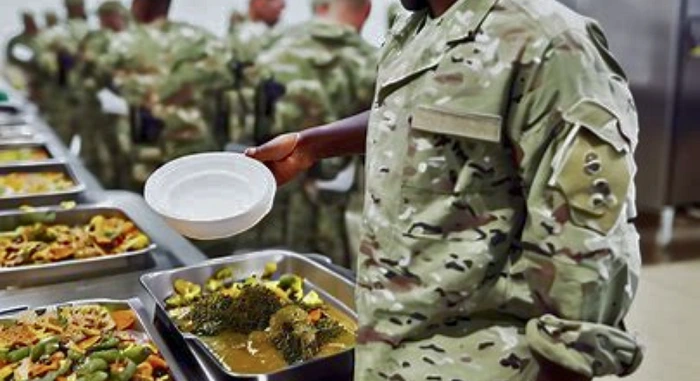The United States Army offers a wide range of military occupational specialties (MOS) that cater to the diverse skills and interests of its personnel. Among these roles is the 92g MOS, an essential position responsible for culinary specialists. This article delves into the details of the 92g MOS, shedding light on its significance, requirements, opportunities, and potential challenges.
What is the 92g MOS?
The 92g MOS, commonly known as a culinary specialist, plays a vital role in the daily lives of soldiers. These specialists are responsible for preparing and serving meals for military personnel, ensuring they receive high-quality nutrition, and maintaining the morale of the troops through delicious and nourishing food.
Qualifications and Training Requirements:
To become a 92g MOS, candidates must meet certain qualifications. They should have a high school diploma or equivalent and must undergo basic combat training. Following this, they attend the Culinary Specialist Advanced Individual Training (AIT), where they gain expertise in food preparation, kitchen safety, and food service operations.
Job Roles and Responsibilities:
As culinary specialists, individuals in the 92g MOS have various responsibilities. They plan and prepare menus, manage food inventory, and ensure compliance with sanitation and safety standards. Additionally, they work in different settings, including field kitchens and dining facilities on military bases.
Advantages of Choosing the 92g MOS:
Opting for the 92g MOS (Military Occupational Specialty) offers a plethora of advantages, making it an appealing career choice for those interested in culinary arts and military service. This role, commonly known as a culinary specialist, not only provides soldiers with nourishing meals but also contributes significantly to their overall well-being. Here are some of the key advantages of pursuing a career as a 92g MOS:
Critical Role in Soldier Well-Being: Culinary specialists maintain soldiers’ physical and mental health by providing nourishing meals.
Development of Valuable Culinary Skills: 92g MOS professionals gain expertise in cooking for large groups and adapting recipes.
Enhanced Leadership and Teamwork Abilities: Working in a fast-paced environment hones their teamwork and leadership skills.
Transferable Skills for Civilian Careers: Skills acquired in the military can lead to culinary jobs in the civilian sector.
Opportunities for Specialization: Culinary specialists can specialize in specific cuisines or techniques.
Exposure to Diverse Cultures: Working worldwide exposes them to diverse culinary practices.
Contribution to Morale and Camaraderie: Providing comforting meals boosts soldiers’ morale and fosters camaraderie.
Challenges and Potential Risks:
Like any other job, the 92g MOS has its challenges. Working in kitchen environments can be physically demanding, especially during high-pressure situations. Additionally, the responsibility of providing nourishment to a large number of soldiers requires attention to detail and strict adherence to hygiene standards.
Career Growth Opportunities:
The 92g MOS offers several avenues for career growth and advancement. Culinary specialists can pursue further education and training in the culinary arts or hospitality management. Additionally, they may have opportunities to take on leadership roles within the culinary team or move into other military specialties.
Salary and Compensation:
The US Army provides competitive compensation to its culinary specialists. In addition to a regular salary, soldiers receive various benefits, such as healthcare, housing allowances, and retirement plans. Furthermore, those with specialized skills or who serve in challenging locations may receive additional incentives.
92g MOS in the Civilian Sector:
The skills acquired as a 92g MOS can open doors to exciting career opportunities in the civilian sector. Graduating from the military as a culinary specialist can lead to jobs in restaurants, hotels, catering companies, and other food-related industries.
Real-Life Experiences of 92g MOS Professionals:
To gain insight into the life of a 92g MOS professional, we spoke with Sergeant Emily Johnson, who served as a culinary specialist for six years. She shared her experiences, highlighting the camaraderie among the kitchen staff and the satisfaction of contributing to the well-being of her fellow soldiers.
Tips for Success in the 92g MOS:
For aspiring culinary specialists, excelling in the 92g MOS requires dedication and passion. Here are some tips from seasoned professionals:
Always maintain high standards of cleanliness and hygiene.
Be open to learning and exploring new culinary techniques.
Develop strong teamwork and communication skills.
Future Outlook and Trends:
The 92g MOS is expected to remain an essential role in the US Army for the foreseeable future. As the military continues to evolve, culinary specialists will adapt their skills to meet the changing needs of the soldiers they serve.
Conclusion:
In conclusion, the 92g MOS offers a rewarding career path for those passionate about both the culinary arts and military service. Culinary specialists play a vital role in maintaining the well-being and morale of soldiers, ensuring they receive the nourishment they need to carry out their duties effectively.
FAQs:
Q: How long is the Culinary Specialist AIT for the 92g MOS?
A: The Culinary Specialist AIT typically lasts around nine weeks.
Q: Are there opportunities for advancement in the 92g MOS?
A: Yes, culinary specialists can advance to higher ranks and leadership positions.
Q: Can 92g MOS professionals specialize in specific cuisines?
A: While not an official specialization, culinary specialists can gain expertise in various cuisines through experience and self-directed learning.
Q: What are some of the benefits of serving in the 92g MOS?
A: Benefits include competitive compensation, healthcare, housing allowances, and retirement plans.
Q: How can one transition from the military’s 92g MOS to a civilian culinary career?
A: Graduating from the 92g MOS can open doors to civilian jobs in restaurants, hotels, catering companies, and related industries. Seeking additional culinary training can enhance job prospects.

